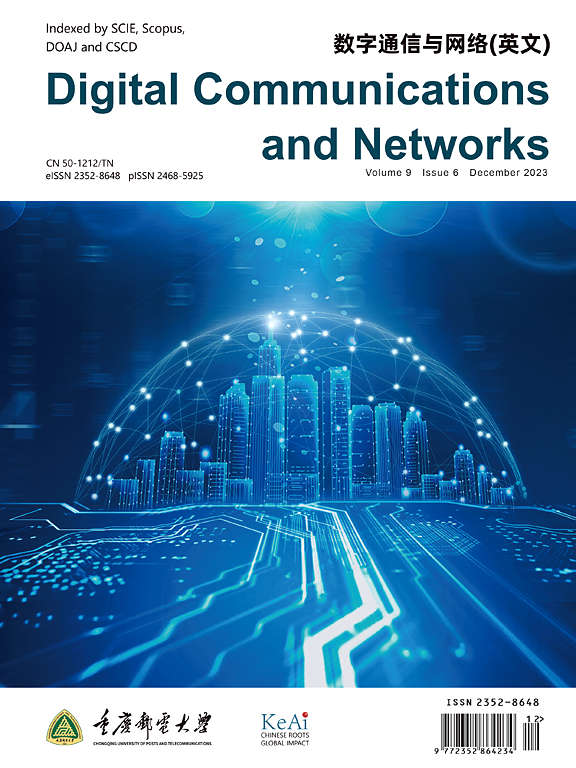A consensus-based solution for cryptocurrencies arbitrage bots in intelligent blockchain
IF 7.5
2区 计算机科学
Q1 TELECOMMUNICATIONS
引用次数: 0
Abstract
Intelligent blockchain is an emerging field that integrates Artificial Intelligence (AI) techniques with blockchain networks, with a particular emphasis on improving the performance of blockchain, especially in cryptocurrencies exchanges. Meanwhile, arbitrage bots are widely deployed and increasing in intelligent blockchain. These bots exploit the characteristics of cryptocurrencies exchanges to engage in frontrunning, generating substantial profits at the expense of ordinary users. In this paper, we address this issue by proposing a more efficient asynchronous Byzantine ordered consensus protocol, which can be used to prevent arbitrage bots from changing the order of the transactions for profits in intelligent blockchain-based cryptocurrencies. Specifically, we present two signal asynchronous common subset protocols, the more optimal one with only constant time complexity. We implement both our protocol and the optimal existing solution Chronos with Go language in the same environment. The experiment results indicate that our protocols achieve a threefold improvement over Chronos in consensus latency and nearly a tenfold increase in throughput.
基于共识的智能区块链加密货币套利机器人解决方案
智能区块链是一个新兴领域,它将人工智能(AI)技术与区块链网络相结合,特别强调提高区块链的性能,特别是在加密货币交易中。与此同时,套利机器人在智能bb0中被广泛部署并不断增加。这些机器人利用加密货币交易所的特点,以牺牲普通用户的利益为代价,赚取巨额利润。在本文中,我们通过提出一种更有效的异步拜占庭有序共识协议来解决这个问题,该协议可用于防止套利机器人在基于区块链的智能加密货币中改变交易顺序以获取利润。具体来说,我们提出了两种信号异步公共子集协议,其中最优的协议只有恒定的时间复杂度。我们在相同的环境下使用Go语言实现了我们的协议和现有的最优解决方案Chronos。实验结果表明,我们的协议在共识延迟方面比Chronos提高了三倍,吞吐量提高了近十倍。
本文章由计算机程序翻译,如有差异,请以英文原文为准。
求助全文
约1分钟内获得全文
求助全文
来源期刊

Digital Communications and Networks
Computer Science-Hardware and Architecture
CiteScore
12.80
自引率
5.10%
发文量
915
审稿时长
30 weeks
期刊介绍:
Digital Communications and Networks is a prestigious journal that emphasizes on communication systems and networks. We publish only top-notch original articles and authoritative reviews, which undergo rigorous peer-review. We are proud to announce that all our articles are fully Open Access and can be accessed on ScienceDirect. Our journal is recognized and indexed by eminent databases such as the Science Citation Index Expanded (SCIE) and Scopus.
In addition to regular articles, we may also consider exceptional conference papers that have been significantly expanded. Furthermore, we periodically release special issues that focus on specific aspects of the field.
In conclusion, Digital Communications and Networks is a leading journal that guarantees exceptional quality and accessibility for researchers and scholars in the field of communication systems and networks.
 求助内容:
求助内容: 应助结果提醒方式:
应助结果提醒方式:


